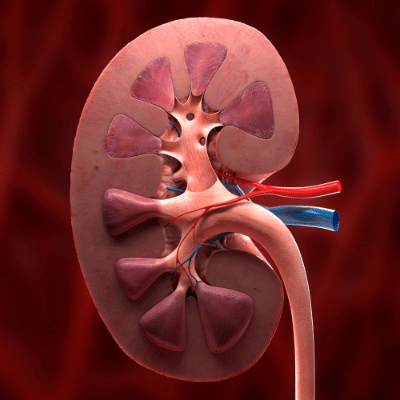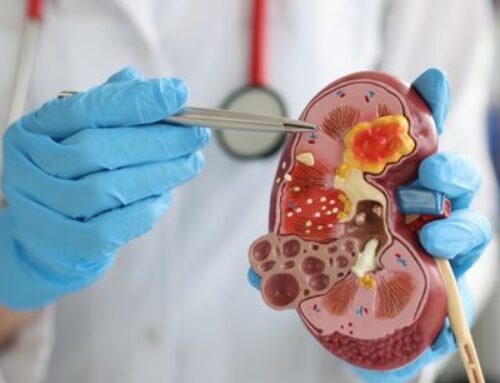Acute Kidney Injury (AKI), also known as acute kidney failure, is a condition that is known to develop quickly. In some patients, it has been known to develop within a few hours. For other patients, it can take a few days to develop. No matter when or how it develops, this condition can be life-threatening. If caught in time, the condition can also be reversible.
 What Is Acute Kidney Injury?
What Is Acute Kidney Injury?
Acute kidney injury is another term for acute kidney failure. It happens when your kidneys suddenly lose their ability to filter wastes from your blood. If it is not addressed quickly, the waste products can accumulate in your kidneys. This condition can prove to be fatal if it is not caught quickly. If you are otherwise in good health, the chances of reversing the condition are good and you may recover most if not all of your kidney function. The most severe cases can result in death due to respiratory failure, sepsis, or the failure of multiple organs.
Symptoms of Kidney Failure
Acute kidney injury is most commonly found in patients who are already hospitalized and critically ill. Symptoms of acute kidney failure include:
- A decrease in urine output. It should be noted that there are occasions where the output remains normal.
- Fluid retention that can cause swelling in your feet, ankles, or legs.
- Shortness of breath
- Fatigue
- Loss of appetite
- Nausea and vomiting
- Heart arrhythmia (irregular heartbeat)
- Chest pain or a feeling of pressure in the chest
- Confusion
- Uncommon bleeding
- Seizures
- Coma
Risk Factors for Acute Kidney Injury
The risk factors for developing acute kidney injury increase if you are over 65. You are also at greater risk for developing it if you suffer from long-term health conditions that include:
- Kidney disease
- Liver disease
- Diabetes that is not properly controlled
- High blood pressure
- Heart failure
- Morbid obesity
Your risk is increased if you are already hospitalized in the intensive care unit. Some surgical procedures can also put you at greater risk, including:
- Heart surgery
- Abdominal surgery
- Bone marrow transplant
You can also be at risk for acute kidney failure if you develop a severe urinary tract infection following surgery. Other complications that can put you at higher risk for developing acute kidney failure include any of these conditions if they occur before, during, or after surgery.
- Traumatic injury
- Significant blood loss
- Low blood pressure
- Decrease in oxygen levels
- Septic shock
Potential Complications from Acute Kidney Injury
Kidney failure has several dangerous potential complications, including:
- Fluid build-up in your lungs
- Chest pain
- Muscle weakness that can lead to balance issues
- Permanent damage to your kidneys
- Loss of kidney function
- Death
Treatment for Acute Kidney Injury
In order to treat your kidney failure, your doctor needs to identify the cause. The number of options available to you will be based on the injury or illness that caused the failure. It will take time for your kidneys to heal from an acute kidney injury. Treatments can include:
Balancing Fluid Levels
Fluid levels in your body during renal failure can point towards one of two treatments. If you are dehydrated and there is not enough fluid in your blood, you will need IV fluids to bring those levels back to normal. Many other cases will experience the opposite, where you have too much fluid which leads to swelling in your arms or legs. In those cases, you will need to get rid of the extra fluid through medication known as a diuretic that will help your body expel those extra fluids.
Controlling Blood Potassium
A common risk when your kidneys are not functioning properly is a buildup of too much potassium in your blood. Your doctor may prescribe things like calcium, glucose or a medication called sodium polystyrene sulfonate to prevent potassium accumulation.
Restoring Calcium Levels
You may need an infusion of calcium if your calcium levels drop too much.
Dialysis
When your kidneys fail, and toxins are accumulating in your blood, your doctor may choose to put you on dialysis. Dialysis will clean the toxins out of your blood and help remove excess fluids. During this procedure, a dialysis machine will pump the blood from your body, clean and filter it, and return the filtered clean blood back into your body.
Recovery
Many people do not live through acute kidney injury. For some, they will need to continue dialysis to keep the waste filtered from their blood. Others will be able to get your kidneys under control by making dietary changes designed to make it so your kidneys don’t have to work as hard. Avoiding foods high in potassium, salt, or phosphorous can help the kidneys function better.
Richmond Nephrology Associates can help. If you have issues with kidneys, call us today.

 What Is Acute Kidney Injury?
What Is Acute Kidney Injury?


